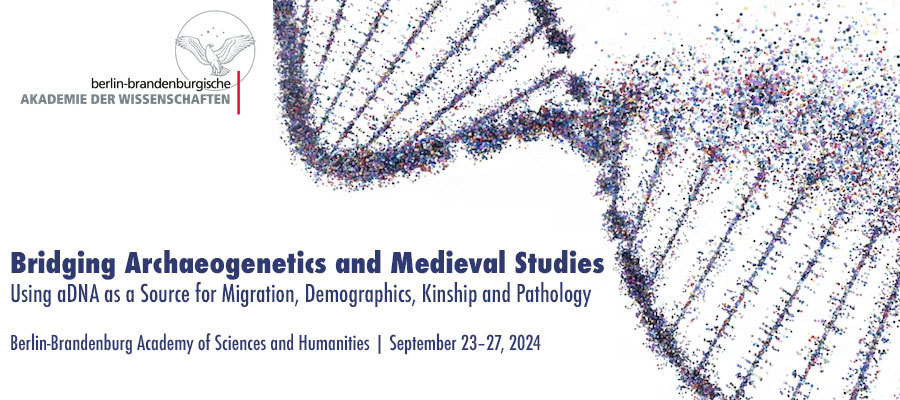Bridging Archaeogenetics and Medieval Studies: Using aDNA as a Source for Migration, Demographics, Kinship and Pathology, Berlin-Brandenburg Academy of Sciences and Humanities, September 23–27, 2024
In the age of the „ancientDNA-revolution“, archaeogenetic research institutes are nowadays routinely analysing samples from all periods of the human past, not the least from medieval times. Sometimes the scientific objective of the analysis resides primarily in the realm of History/Archaeology; sometimes the questions asked are of a biological nature; in other instances there is a mix of both. A rapidly growing and highly promising field of more or less intertwined genetic, historical, and archaeological knowledge production is developing, and the Middle Ages have become relevant to Genetics, as well as vice versa. Yet, true interdisciplinary cooperation remains rare, and there is much mutual distrust, misunderstanding and lack of knowledge. The Interdisciplinary Summer School „Bridging Archaeogenetics and Medieval Studies“ will bring together students from History, Biology, Archaeology and other relevant disciplines in order to familiarize them with the use of a(ncient)DNA as a source for migration, demographics, kinship and pathology in the Middle Ages.
The Summer School will provide a general introduction to the scientific methods, both in theory and practice. In addition, participants will be given the opportunity to learn about a particular ongoing research project, „Migration and Urban Demographics in the Berlin-Brandenburg Area during the High Middle Ages“, in which many among the teaching staff are involved. Participants will be able to learn how the methods are applied to a concrete case study, to discuss with scientists cooperating in an ongoing research project, and to participate in interdisciplinary exchanges around specific problems. This interaction will help to develop critical engagement with the sometimes fundamentally different general approaches of scientists and scholars in the humanities.
The program is intended for M.A. students and junior PhD/doctoral students from History, Biology, Archaeology and other Natural Sciences and Humanities.
There is no fee. However, participants must cover their own accommodation and travel expenses for travelling to and from Berlin, as well as for the day trip to Leipzig.
